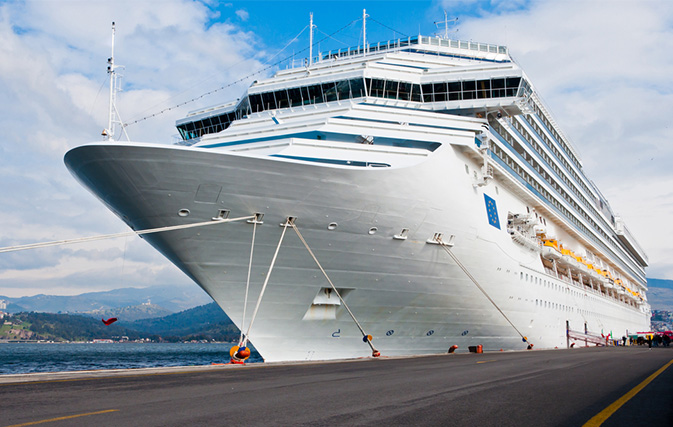ATLANTA — The CDC in the U.S. has extended its No Sail Order on cruise ships until Sept. 30, 2020.
The 30-day No Sail Order was originally signed March 14 and extended in mid-April until at least mid-July.
In a new statement sent out July 16, the CDC says it “continues to have regular conversations by phone and email with cruise lines, often daily.”
CDC says its cumulative data for March 1 – July 10, 2020 indicates a total of 2,973 COVID-19 or COVID-like illness cases on cruise ships, in addition to 34 deaths.
The CDC says the data also shows a total of 99 outbreaks on 123 different cruise ships, “meaning that 80% of ships within U.S. jurisdiction were affected by COVID-19 during this time frame.”
CLIA’S RESPONSE
On June 19 CLIA’s ocean-going member cruise lines announced they were voluntarily extending their suspension of operations through Sept. 15.
CLIA issued a statement of its own in response to the CDC’s announcement, saying, “As reflected in today’s announcement, CLIA and its member lines remain aligned with the CDC in our commitment to public health and safety.
“We are also pleased that the CDC has announced its intention to issue a request for information about the industry’s resumption of passenger operations.
“As we continue to work towards the development of enhanced protocols to support the safe resumption of cruise operations around the world, we look forward to timely and productive dialogue with the CDC to determine measures that will be appropriate for ocean-going cruise operations to resume in the United States when the time is right.
NOT SMOOTH SAILING
The CDC’s statement says the CDC “supports the decision by CLIA and its members to voluntarily extend the suspension of operations for passenger cruise ship travel. However, because not all cruise ship operators subject to the No Sail Order are members of CLIA or have made similar commitments, CDC is extending its No Sail Order to ensure that passenger operations do not resume prematurely.”
The extended No Sail Order will remain in effect until the earliest of these three thresholds are met: the expiration of the Secretary of Health and Human Services’ declaration that COVID-19 constitutes a public health emergency; or the CDC Director rescinds or modifies the No-Sail Order based on specific public health or other considerations; or Sept. 30, 2020.
While the cruise lines have been working closely with the CDC as the two groups navigate uncharted waters, it hasn’t always been smooth sailing.
Cruise lines submitted their No Sail Order (NSO) response plans to the CDC starting in April. As of July 10, 2020, the CDC says one cruise ship operator representing only one cruise ship operating in U.S. waters had an NSO response plan meeting all the elements described in the April 15, 2020 extension. That was Bahamas Paradise Cruise Line.
Throughout the spring CDC says it sent ‘Dear Colleague’ letters to cruise ship operators, stating that CDC was aware of allegations of cruise ship non-compliance with the April 15, 2020 extension through social media and other sources.
Alleged instances of non-compliance included not adhering to social distancing protocols; unauthorized crew transfers while outside of U.S. waters; not submitting weekly surveillance data (through the EDC form); not relocating all crew to single-occupancy cabins with private bathrooms; not cancelling all social gatherings; and not closing all crew bars, gyms, or other group settings.
ASSESSING THE RISKS
The CDC’s statement notes that “the current scientific evidence suggests that cruise ships pose a greater risk of COVID-19 transmission than other settings.”
Of concern for anyone selling cruises is the CDC’s references to studies showing that the heightened rate of transmission is due to the high population density onboard on ships.
The CDC says: “CDC’s surveillance data acquired during the period of the NSO show that drastically decreasing population onboard does not extinguish transmission. Other factors likely contributing to onboard transmission are crew living and working in close quarters in a partially enclosed environment where social distancing may prove challenging even with a limited number of people onboard.”
Essentially, decreasing the number of people onboard won’t necessarily solve the problem of COVID-19 transmission onboard cruise ships, according to the CDC.
The CDC acknowledges all the hard work cruise lines have undertaken in the last four or five months to tackle virus transmission onboard the ships. “These interventions include enhanced stateroom cleaning, installation of new air filters, pre-boarding health screenings, increased social distancing, increased availability of hand sanitizer, and more self-service meal options,”notes the CDC.
The CDC said further industry-led engagement as to which strategies, best practices, and procedures, either singularly or in combination, would be most effective in protecting the health of passengers, crew, and global communities, would be beneficial.
MEANWHILE IN THE UK…
Earlier this month in the UK, the FCO issued a statement warning Britons against all cruise travel.
However today, July 16, the FCO updated that advice, in a move that some in the UK travel industry took as a green-light for river cruising. But the warning still names amenities also available on river cruise ships, and passenger rosters on river cruise ships are almost always international.
According to the FCO, “our advice against cruises applies to international travel on a ship that is exclusively for pleasure or recreation, providing overnight accommodation and other leisure facilities such as entertainment venues or swimming pools.”

